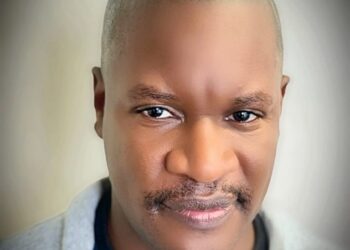Land conflicts have become rampant around Kampala and its suburbs to the extent that all land evictions are carried out by people who claim ownership of land by virtue of holding Land titles. The Land Amendment Act of 2010 transferred the Land Tribunals from the Ministry responsible for Lands to the Judiciary, an act that contradicted the original intention of handling land cases using Alternative Dispute Resolution (ADR) methods as employed in developed countries. It is suspected that the use of the term “Tribunals” might have influenced the Judiciary to see it fit to transfer the services of the Land Tribunals to the Ministry of Justice, defeating the main benefits of (ADR) to be cheaper and to avoid the lengthy Court procedures.
During his term of office, the former Chief Justice Benjamin Odoki introduced mediation in the High Court of Uganda, although no clear structure or guidelines were spelt out to be followed in the process. What exists today is an arrangement that sends a case which has been presented to a Judge to a Registrar for what is called “mediation.” This process is treated as a mere ritual to satisfy the imposed requirement and in most cases the advocates involved in the case advise their clients to ignore the process, after all there are no sanctions involved. The outcome has always been a win-lose situation, ending up in misery for the vulnerable poor, who cannot afford to hire reputable advocates to represent them in Court.
What is required in Uganda today is to come up with clear Principles and Guidelines to be followed in these processes which we introduce to avoid confusion. In developed countries where mediation is practiced effectively, a mediator is engaged to manage the process for a fee. He or she must be agreed upon by those involved in the dispute. A professional mediator may be assisted by aides who do not participate directly in the process because the mediator does not behave like a judge. It must be stressed here that a mediator does not take sides and nor does he take decisions. He only guides the disputants to behave in a manner that would help them reach agreement.
This Paper is intended to highlight the difference between litigation and mediation to avoid the tendency by legal practitioners to think that a lawyer or judge may easily be converted into a mediator. On the contrary the principles followed in litigation may contradict those used in mediation. The friendly atmosphere required between the disputants in a mediation process may not be necessary in court and yet a mediator’s task requires that he turns an adversarial situation into a friendly one in order for the parties to become creative. The purpose of holding the process, it should be remembered, is to work out solutions that would turn the adversarial atmosphere into a collaborative environment.
Secondly, the mediator needs to empower the parties to drive the process so that they own the outcome in the end. It should be born in mind that the end of a successful mediation process is an Agreement signed by all parties, which agreement would be respected by Courts of Law.
Another issue that must be noted is the involvement of all parties with significant interests. Unlike litigation where there are always two contesting parties, mediation allows all parties with sound interests to participate. The mediator has a duty to identify all those parties if the agreement is to be sustainable. It is therefore important that if mediation is to be used by any community there should be trained people from whom the community will select those found to be able to perform best.
Judges and lawyers study their techniques from the same school which promotes the empowerment of the legal practitioners over their clients. However, mediation empowers the parties involved in the dispute to decide their destiny by discussing all the options before them and taking decisions that address their concerns. To shift judges from the litigation-oriented mindset to a mediation system requires training to become familiar with the new approach.
The rampant land disputes in the Central Region today could be a result of allowing local council members to handle what they think is mediation without any formal training in that field. Similarly, employing retired judges to handle mediation processes would be straining the old men and women to start learning and adopting new methods of work in their late hours.
Finally, let me propose that a paralegal-certificate course be prepared for Land Officers to undergo some training and be available for such services.
Sewajjwa M. Kyeyune
A Professional Mediator at Santa Property Services.
Contact: 0772571675, 0705205984
Do you have a story in your community or an opinion to share with us: Email us at editorial@watchdoguganda.com













